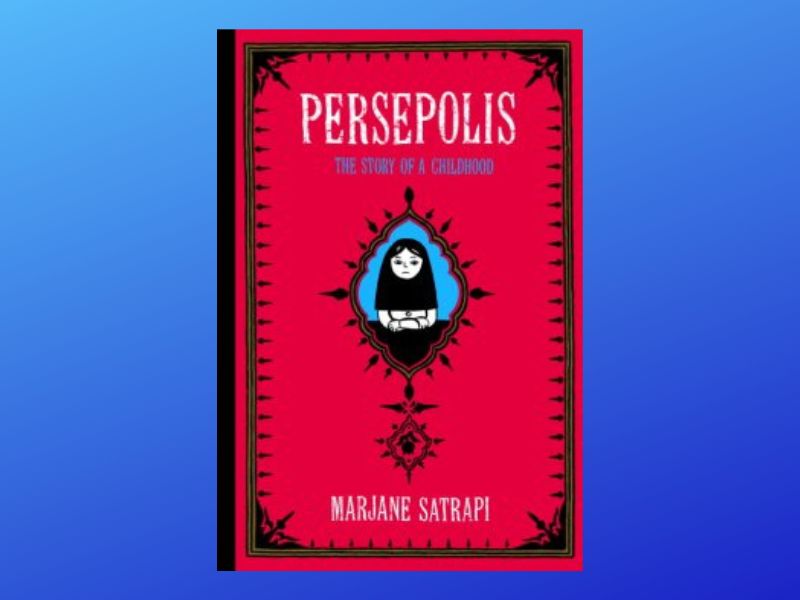Krystal’s Review:
Favorite quote from the book:
“Because there is nothing worse than bitterness and vengeance…always keep your dignity and be true to yourself” (150).
This advice was given to Marjane from her grandmother, and highlights one of my favorite themes of the book–family support systems. This graphic novel memoir is based on Marjane Satrapi’s girlhood growing up in Iran during the Iranian Revolution. Both of Marjane’s parents are incredibly supportive of her–constantly encouraging her to speak her mind and stand up for her rights.
The first time I read this book was in high school, and I remembered liking it, but rereading it for this month’s Rose City Book Club made me appreciate it even more. With the recent women’s protests in Iran, it’s shocking how much overlap this book written around the 1979 Iranian Revolution has with the protests started in September 2022 after “the death of twenty-two-year old Mahsa Amini, who was sent to a reeducation center for ‘inappropriate attire’–too much hair protruding from a head scarf–in Tehran. She ended up in a coma on a ventilator and died three days later” (Wright, “Iran’s Protests Are the First Counter-Revolution Led By Women”, The New Yorker, October 9, 2022).
At age fourteen, Marjane was accosted by women on the street for her attire. They wanted her to get in a car to be driven to the committee: “At the committee, they didn’t have to inform my parents. They could detain me for hours, or for days. I could be whipped. In short, anything could happen to me” (pg 134). Marjane was able to avoid Mahsa’s fate, thankfully. Books like Persepolis are so crucial because they highlight history from a completely different perspective, and allow us to sympathize for situations we might not be able to relate to.
Read this book if you like: Taking Cover by Nioucha Homayoonfar, Lipstick Jihad by Azadeh Moaveni, or Dare to Disappoint by Ozge Samanci.
Krystal S.


